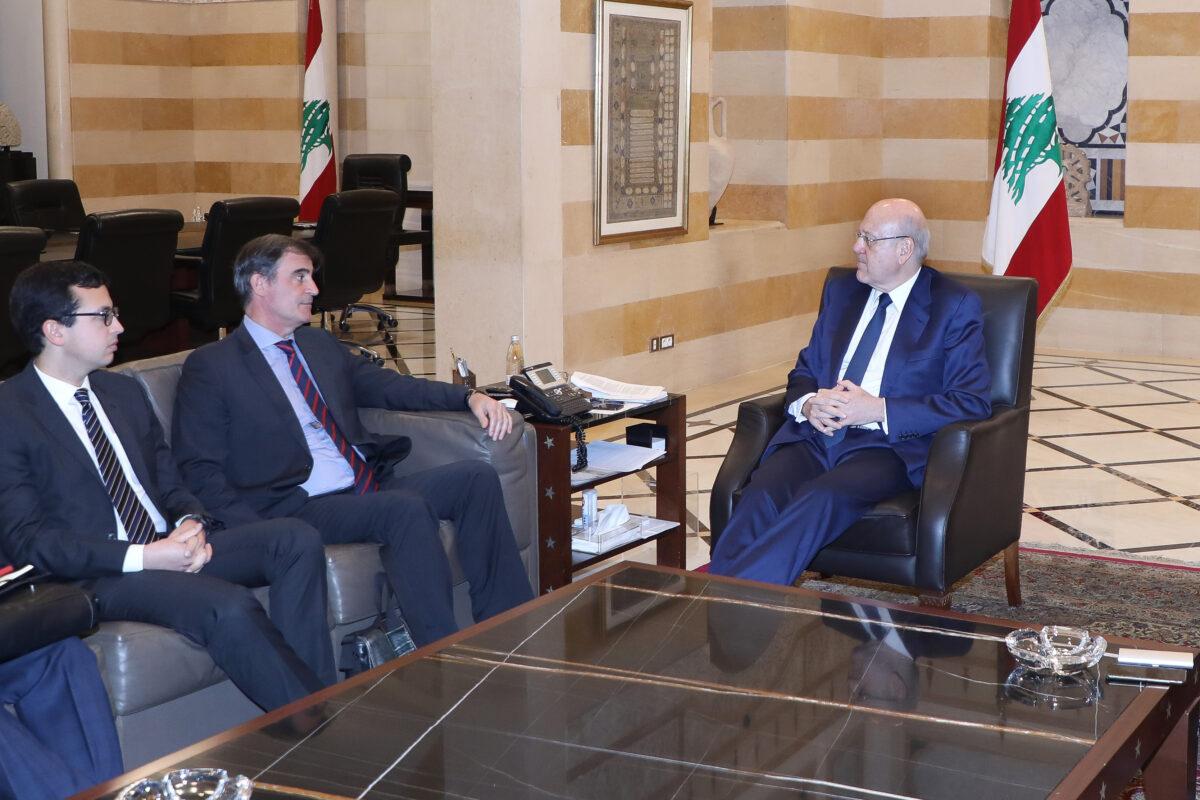
Following the visit of a fact-finding delegation to Lebanon, the International Monetary Fund (IMF) issued a strongly worded statement over what it called a “lack of action on urgently needed reforms” and the fact that “the 2023 budget remains lacking in terms of timeliness and coverage.”
Reportedly the delegation was given a cold shoulder in the meeting with Parliament members, who reiterated the need to establish a “Depositors Recovery Fund” to compensate losses of all depositors. The main issue of the negotiations, which also emerged during the meetings held in recent years, concerns the distribution of the financial losses accumulated by the country. The IMF demands that this process includes “the recognition and preventive treatment of significant losses suffered by the Central Bank and commercial banks, respect for the hierarchy of creditors, the protection of small account holders and the limitation of the use of public funds,” as already specified by an IMF delegation during its previous visit to Beirut last March. However, the chairs of the parliamentary committees on Finance and Budget and Administration and Justice have both rejected this idea and believe that these deposits cannot be considered as losses. According to them, these are, instead, commitments of the State, the Central Bank of Lebanon (BDL) and the commercial banks toward account holders.
The main contention behind the fund is to mortgage the state assets as a provision for the loss of deposits in the system. Those assets will be liquidated to repay depositors, the MPs suggest; reiterating the same argument following three and a half years of reckless depletion of reserves.
The IMF delegation rejected both the idea of creating the “Deposit Recovery Fund” (which is backed by the powerful lobby of the Association of the Banks in Lebanon) and that of making greater use of state budget profits to cover the losses of the banking sector and “of rich account holders close to the system, whatever their political affiliation.”
The IMF delegation wants to see a wider range of taxes. “We encourage the authorities to start implementing the key elements of the Fund’s tax policy reform recommendations, published in the 2023 Technical Assistance Report on Putting Tax Policy Back on Track, and start rehabilitation plans of major SOEs,” the statement said.
The government of Najib Mikati has suggested creating such a “Depositors Recovery Fund” in its Recovery Plan, disclosing that the total deposits in Lebanese banks amount to $93.5 billion, out of which $21 billion is the bank’s core capital. The recovery plan distributed the $21 billion as follows: $4 billion held abroad by correspondent banks for import transactions and loan repayments to international institutions, $6 billion in loans granted by banks to the private sector, which will be repaid over time, $1 billion in Eurobonds is owed by banks to the state, and $10 billion in mandatory reserves held by banks at BDL. Of the total deposits, 88 percent represent small depositors (whose accounts hold less than $100,000), and the remaining 12 percent belong to large depositors.
The government’s latest plan proposes returning $100,000 to each depositor, ensuring that all funds for small depositors are returned. However, for larger deposits, the process is more complicated. For those with more than $1 million in deposits, they will be required to provide evidence to the bank about the source of these funds. Any interest gains from high interest rates after 2015 will be deducted from the deposit for those with balances above $100,000.
The IMF would be in favor of refunding the deposits of all account holders, provided that this occurs outside the terms of the agreement with Lebanon. In April 2022, in fact, Beirut signed a preliminary agreement with the IMF for the disbursement of $3 billion over four years. Therefore, it is becoming clear that the mechanism for restructuring the banking sector currently proposed by the government still does not align with the initial understanding reached between Lebanon and the IMF, which brings things back to square one. The Capital Control Law project, currently up for a vote in parliament, also remains far from meeting the IMF’s requirements, despite all the amendments made to it within the parliament.
“While work is progressing well on a revised bank resolution law, it needs to be completed so that the law can be resubmitted to Parliament. Amendments to the Bank Secrecy Law, which are aimed at addressing deficiencies, and the draft Law on Capital Controls and Deposit Withdrawals, are still awaiting parliamentary approval” the IMF’s press release noted.
For the international funding giant, however, the equation is simple: Lebanon must initiate the reforms envisaged in the agreement signed in April 2022 to fix its finances, restructure its banking system, and revive its economy, otherwise, growth prospects will remain very limited.
The current round of the IMF mission has not received the political and public attention it deserves, given the high cost that Lebanon will bear in the coming years if the political system dismisses the agreement with the IMF. “While the recent policy decisions by the Banque du Liban are a welcome initial step, a permanent solution requires comprehensive policy decisions from Parliament and Government to contain the external and fiscal deficits and start the restructuring of the banking system and major SOEs,” the IMF statement quoted. In other words, just as Lebanon has borne the cost of the collapsing situation over the past three years without a comprehensive reform plan, the country will head into a lost abyss of financial and monetary chaos if the parliament rejects the last hope for economic recovery. At present, and after three years of negotiations, it seems that the talks with IMF and Lebanon are on the brink of collapse, with each party sticking to its demands.
Maan Barazy is an economist and founder and president of the National Council of Entrepreneurship and Innovation. He tweets @maanbarazy.
The views in this story reflect those of the author alone and do not necessarily reflect the beliefs of NOW.








